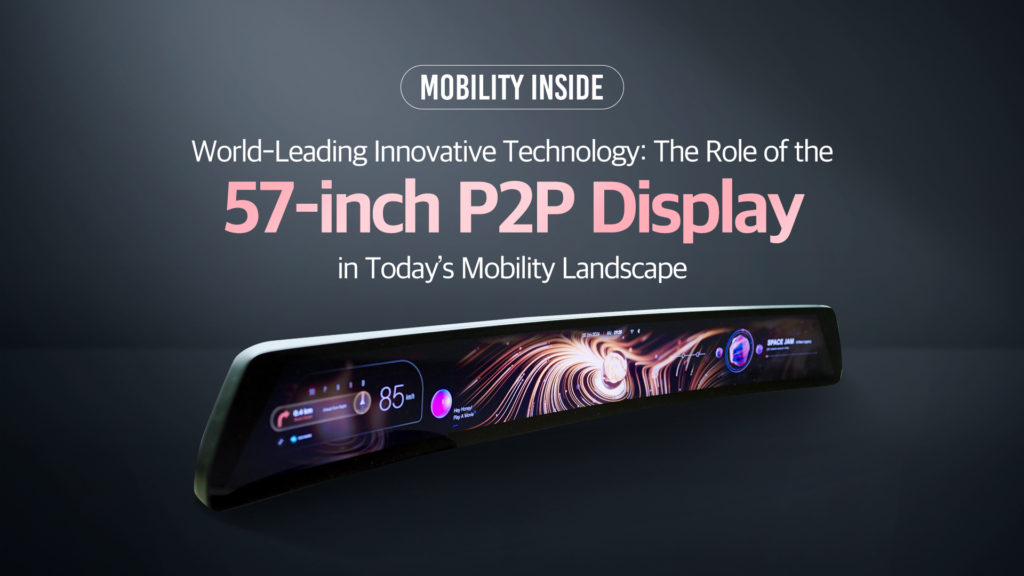
In the EU, the use of recycled materials in all plastic packaging has become mandatory, accompanied by the implementation of additional tax policies. Recognizing the significance of these measures, LG Display is proactively preparing for future environmental challenges and regulatory changes by developing advanced technologies. In collaboration with Hanwha Solutions, LG Display has successfully developed eco-friendly cushioning packaging for electronic components using Post-Consumer Recycled (PCR) materials. Imagine a world where plastics, often criticized as a major pollutant, are recycled and reborn into diverse industrial products!
Equivalent to Planting 50,000 Pine Trees: The Impact of Eco-Friendly Materials

Recycled plastic’ refers to materials derived from post-consumer plastics that are collected, sorted, and processed for reuse. Unlike conventional plastics, recycled plastics present a sustainable alternative by reducing the need for new plastic production and minimizing waste. This not only promotes resource circulation but also lowers carbon emissions, making recycled plastic a key eco-friendly material.
The collaboration between LG Display and Hanwha Solutions has produced remarkable results. LG Display focused on optimizing the design and verifying performance, while Hanwha Solutions refined and processed the raw materials using its proprietary technology. After two years of continuous research and development, the team successfully developed eco-friendly packaging that maintains the same quality as conventional materials.
The recently developed cushioning packaging material, designed to protect display panels, incorporates plastic certified by the globally recognized environmental certification body, Control Union. The material has earned the Global Recycled Standard (GRS) certification.

By implementing this eco-friendly cushioning packaging, LG Display is reducing annual carbon emissions by an impressive 520 tons. This reduction accounts for approximately 40% of previous emissions, equivalent to planting nearly 57,000 30-year-old pine trees—an extraordinary achievement.
Beginning in January next year, LG Display plans to introduce this packaging material to automotive display panels and progressively expand its application to other product categories.
Caring for the Environment at Every Stage: From Production to Disposal

LG Display is committed to sustainable growth by developing and expanding the production of eco-friendly products. A notable example is the company’s OLED TV panels, where each pixel emits light independently, eliminating the need for a backlight. This innovation significantly reduces the use of film and sheet materials, cutting plastic usage by more than 90% compared to LCDs.
Additionally, by increasing the use of ferrous metal materials, LG Display has improved the recyclability of its products to 92.7%, thereby minimizing their environmental impact. As part of these efforts, the company has received ‘Low Plastic’ and ‘Eco-Friendly Product’ certifications from international organizations.

Since 2021, LG Display has adopted the Life Cycle Assessment (LCA) methodology, which evaluates the environmental impact of products throughout their entire lifecycle—from raw material sourcing and manufacturing to post-delivery stages. By analyzing six key impact categories—global warming, resource depletion, ozone layer depletion, photochemical smog, eutrophication, and acidification—LG Display has achieved significant results. These include reducing material and component usage, decreasing greenhouse gas emissions and energy consumption during manufacturing, developing low-power products, and minimizing waste at the end-of-life stage.
Towards a Sustainable Future with Eco-Friendly Technologies

Through its dedication to developing eco-friendly technologies and products, LG Display is leading the way in minimizing environmental impact. By creating sustainable materials, the company is actively practicing ESG management while providing differentiated value to its customers. LG Display’s sincere commitment to sustainability will continue well into the future!








